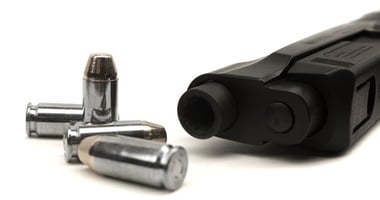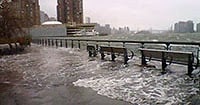Intense and widespread news coverage of mass-shooting events like the one in Newtown, Conn., last...
APA Responds to Newtown Shooting
 |
“On behalf of the leadership of the American Psychiatric Association and myself, I would like to convey our deepest sympathies to the families of the Connecticut victims touched by [Friday’s] unspeakable events,” said APA President Dilip Jeste, M.D. “APA stands ready to do whatever we can to help alleviate the suffering caused by the tragedy and help the survivors cope with life after a trauma of this unimaginable magnitude.” APA’s Committee on Psychiatric Dimensions of Disasters will be working with district branches and members to provide support materials and assistance, said Jeste.
In Connecticut, redeveloping a sense of safety for children was key for reducing the risk of deeper psychological trauma among the living, said child psychiatrist Louis Kraus, M.D., chair of APA’s Council on Children, Adolescents, and Their Families. Part of that effort means reestablishing routine. “You have to get them back to school," Kraus told Psychiatric News. “The longer they don’t get back, the longer it will take them to recover.”
Caring for survivors will be more complex because children respond to death differently depending on their developmental age, said Stephen Cozza, M.D., a professor of psychiatry at the Uniformed Services University of the Health Sciences. Cozza has studied and worked with children of military personnel who were killed or wounded. Children younger than age 6 may reenact the event or complain of somatic symptoms, like headaches or stomach aches, he said. “Others may exhibit magical thinking, believing they could have done something to prevent the event,” said Cozza. “We have to relieve the child of that misguided sense of responsibility.” Parents should minimize their children’s exposure to media stories about the event, said both Kraus and Cozza.
Parents of the child victims will have the extraordinary burden of living with their own grief while trying to care for their other children, said Cozza. “We know less about the effects of these events on siblings,” he said. “They can also feel survivors’ guilt and may feel responsible for continuing some tradition within the family that the victim once did.”
For more in Psychiatric News about mass shootings, click here. Also, see the book Disaster Psychiatry: Readiness, Evaluation, and Treatment from American Psychiatric Publishing. APA's homepage also contains a message from Jeste and valuable information about responding to mass tragedies.
(Image: Privilege/Shutterstock.com)





